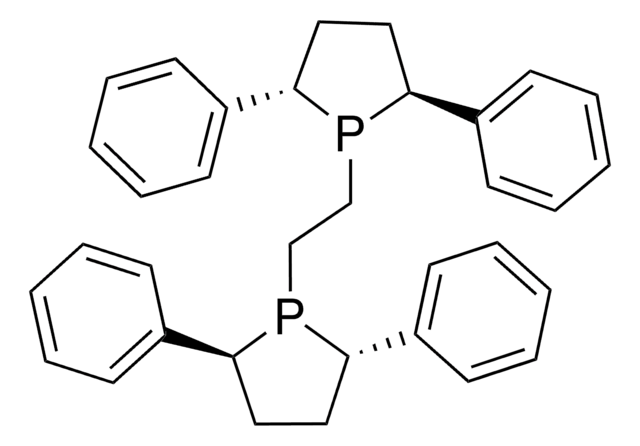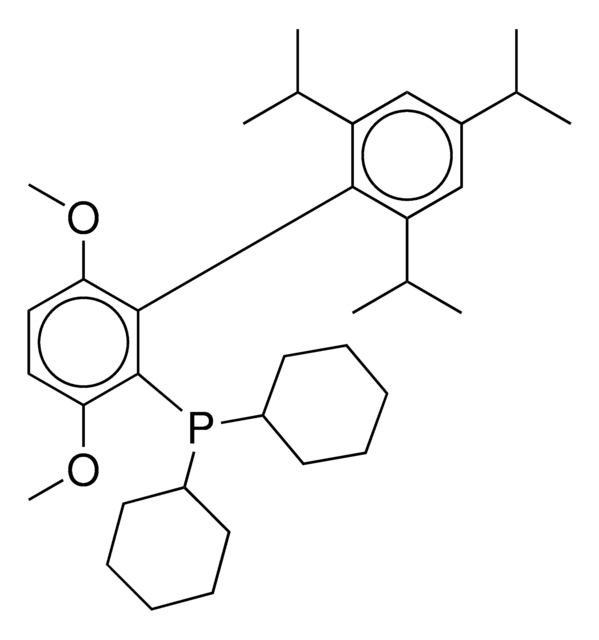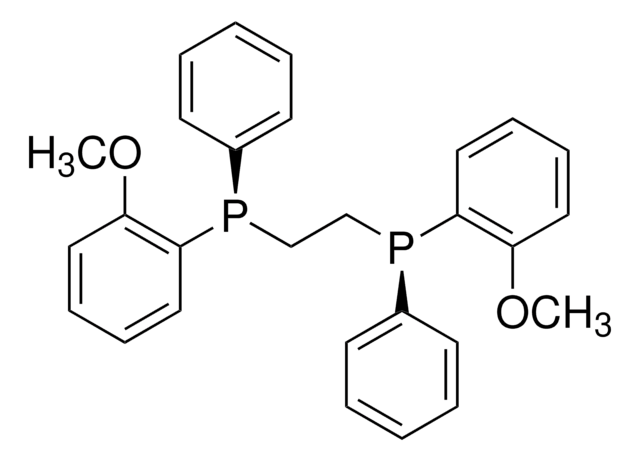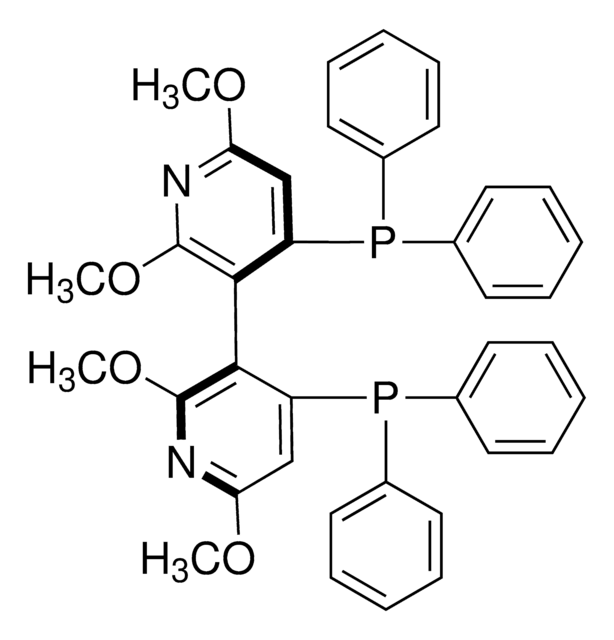680990
1,1′-Bis[(2R,5R)-2,5-diethylphospholano]ferrocene
Synonym(s):
R,R-Et-Ferrocelane™
About This Item
Recommended Products
form
solid
Quality Level
optical activity
[α]20/D +380°, c = 1 in chloroform
mp
85-91 °C
SMILES string
C[Fe]C.CC[C@@H]1CC[C@@H](CC)P1[C@@H]2CCCC2.CC[C@@H]3CC[C@@H](CC)P3[C@H]4CCCC4
InChI
1S/2C13H25P.2CH3.Fe/c2*1-3-11-9-10-12(4-2)14(11)13-7-5-6-8-13;;;/h2*11-13H,3-10H2,1-2H3;2*1H3;/t2*11-,12-;;;/m11.../s1
InChI key
CPUKIDAUDCWIRT-QULUYMGFSA-N
Application
- As a catalyst in the asymmetric hydrogenation reactions of olefins and ketones.
- As a component of a rhodium based precatalyst, applicable in the 2-methylenesuccinamic acid hydrogenation reaction.
Legal Information
Storage Class Code
11 - Combustible Solids
WGK
WGK 3
Flash Point(F)
Not applicable
Flash Point(C)
Not applicable
Choose from one of the most recent versions:
Certificates of Analysis (COA)
Don't see the Right Version?
If you require a particular version, you can look up a specific certificate by the Lot or Batch number.
Already Own This Product?
Find documentation for the products that you have recently purchased in the Document Library.
Articles
Asymmetric hydrogenation reactions represent the ideal process for the commercial manufacture of single-enantiomer compounds, because of the ease by which these robust procedures can be scaled up and because of the low levels of byproducts generated in these asymmetric hydrogenations.
Our team of scientists has experience in all areas of research including Life Science, Material Science, Chemical Synthesis, Chromatography, Analytical and many others.
Contact Technical Service![1,1′-Bis[(2R,5R)-2,5-dimethylphospholano]ferrocene ≥97%](/deepweb/assets/sigmaaldrich/product/structures/147/962/d2e3c31a-2de0-4fb6-8cce-6617595922ba/640/d2e3c31a-2de0-4fb6-8cce-6617595922ba.png)
![(R)-1-[(SP)-2-(Diphenylphosphino)ferrocenyl]ethyldicyclohexylphosphine ≥97%](/deepweb/assets/sigmaaldrich/product/structures/245/493/2ae2dd8a-65cc-4aba-9a1f-1292eb1ad8e0/640/2ae2dd8a-65cc-4aba-9a1f-1292eb1ad8e0.png)
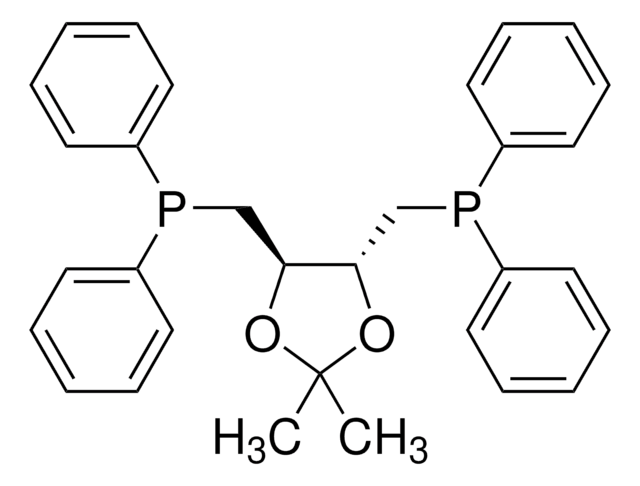
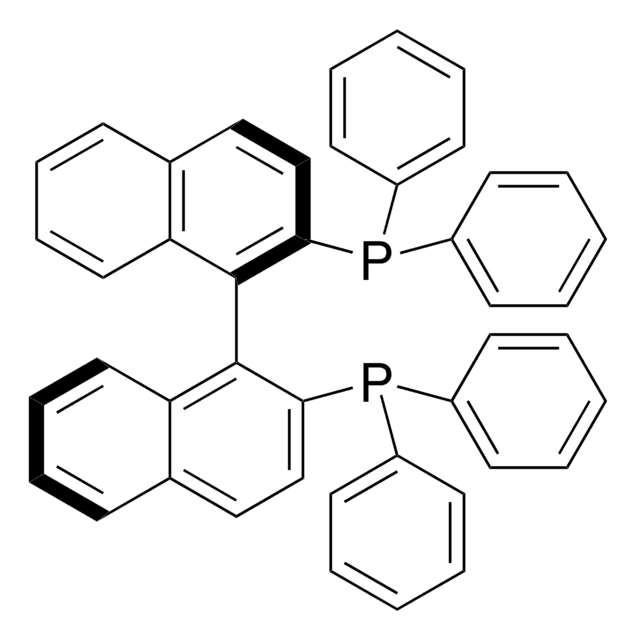
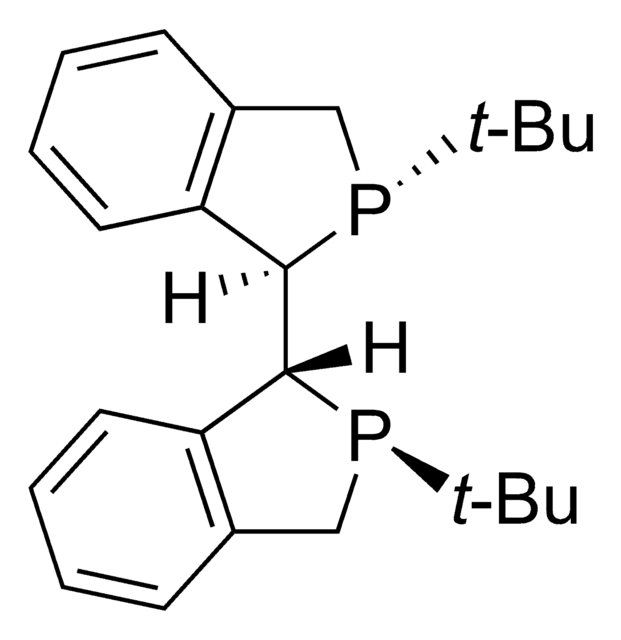
![(R)-(–)-4,12-Bis(diphenylphosphino)-[2.2]-paracyclophane 96%](/deepweb/assets/sigmaaldrich/product/structures/131/143/7e18cd49-a90e-4d89-a189-4f37ad9e6cd2/640/7e18cd49-a90e-4d89-a189-4f37ad9e6cd2.png)
